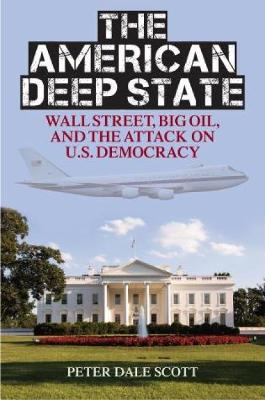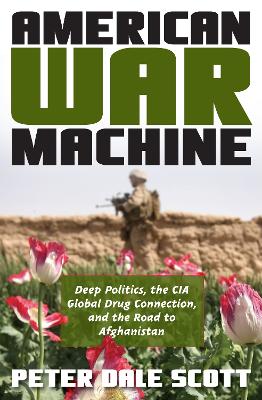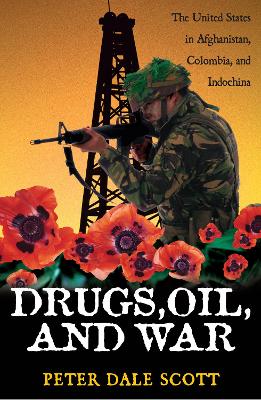War and Peace Library
3 total works
This provocative book makes a compelling case for a hidden "deep state" that influences and often opposes official U.S. policies. Prominent political analyst Peter Dale Scott begins by tracing America's increasing militarization, restrictions on constitutional rights, and income disparity since the Vietnam War. He argues that a significant role in this historic reversal was the intervention of a series of structural deep events, ranging from the assassination of President Kennedy to 9/11. He does not attempt to resolve the controversies surrounding these events, but he shows their significant points in common, ranging from overlapping personnel and modes of operation to shared sources of funding. Behind all of these commonalities is what Scott calls the deep state: a second order of government, behind the public or constitutional state, that has grown considerably stronger since World War II. He marshals convincing evidence that the deep state is partly institutionalized in non-accountable intelligence agencies like the CIA and NSA, but it also includes private corporations like Booz Allen Hamilton and SAIC, to which 70 percent of intelligence budgets are outsourced. Behind these public and private institutions is the traditional influence of Wall Street bankers and lawyers, allied with international oil companies beyond the reach of domestic law. With the importance of Gulf states like Saudi Arabia to oil markets, American defense companies, and Wall Street itself, this essential book shows that there is now a supranational deep state, sometimes demonstrably opposed to both White House policies and the American public interest.
This provocative, thoroughly researched book explores the covert aspects of U.S. foreign policy. Prominent political analyst Peter Dale Scott marshals compelling evidence to expose the extensive growth of sanctioned but illicit violence in politics and state affairs, especially when related to America's long-standing involvement with the global drug traffic. Beginning with Thailand in the 1950s, Americans have become inured to the CIA's alliances with drug traffickers (and their bankers) to install and sustain right-wing governments. The pattern has repeated itself in Laos, Vietnam, Italy, Mexico, Thailand, Nigeria, Venezuela, Colombia, Peru, Chile, Panama, Honduras, Turkey, Pakistan, and now Afghanistan-to name only those countries dealt with in this book. Scott shows that the relationship of U.S. intelligence operators and agencies to the global drug traffic, and to other international criminal networks, deserves greater attention in the debate over the U.S. presence in Afghanistan. To date, America's government and policies have done more to foster than to curtail the drug trade. The so-called war on terror, and in particular the war in Afghanistan, constitutes only the latest chapter in this disturbing story.
Peter Dale Scott's brilliantly researched tour de force illuminates the underlying forces that drive U.S. global policy from Vietnam to Colombia and now to Afghanistan and Iraq. He brings to light the intertwined patterns of drugs, oil politics, and intelligence networks that have been so central to the larger workings of U.S. intervention and escalation in Third World countries through alliances with drug-trafficking proxies. This strategy was originally developed in the late 1940s to contain communist China; it has since been used to secure control over foreign petroleum resources. The result has been a staggering increase in the global drug traffic and the mafias associated with it_a problem that will worsen until there is a change in policy. Scott argues that covert operations almost always outlast the specific purpose for which they were designed. Instead, they grow and become part of a hostile constellation of forces. The author terms this phenomenon parapolitics_the exercise of power by covert means_which tends to metastasize into deep politics_the interplay of unacknowledged forces that spin out of the control of the original policy initiators. We must recognize that U.S. influence is grounded not just in military and economic superiority, Scott contends, but also in so-called soft power. We need a 'soft politics' of persuasion and nonviolence, especially as America is embroiled in yet another disastrous intervention, this time in Iraq.


